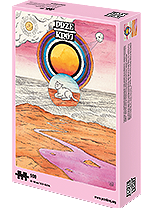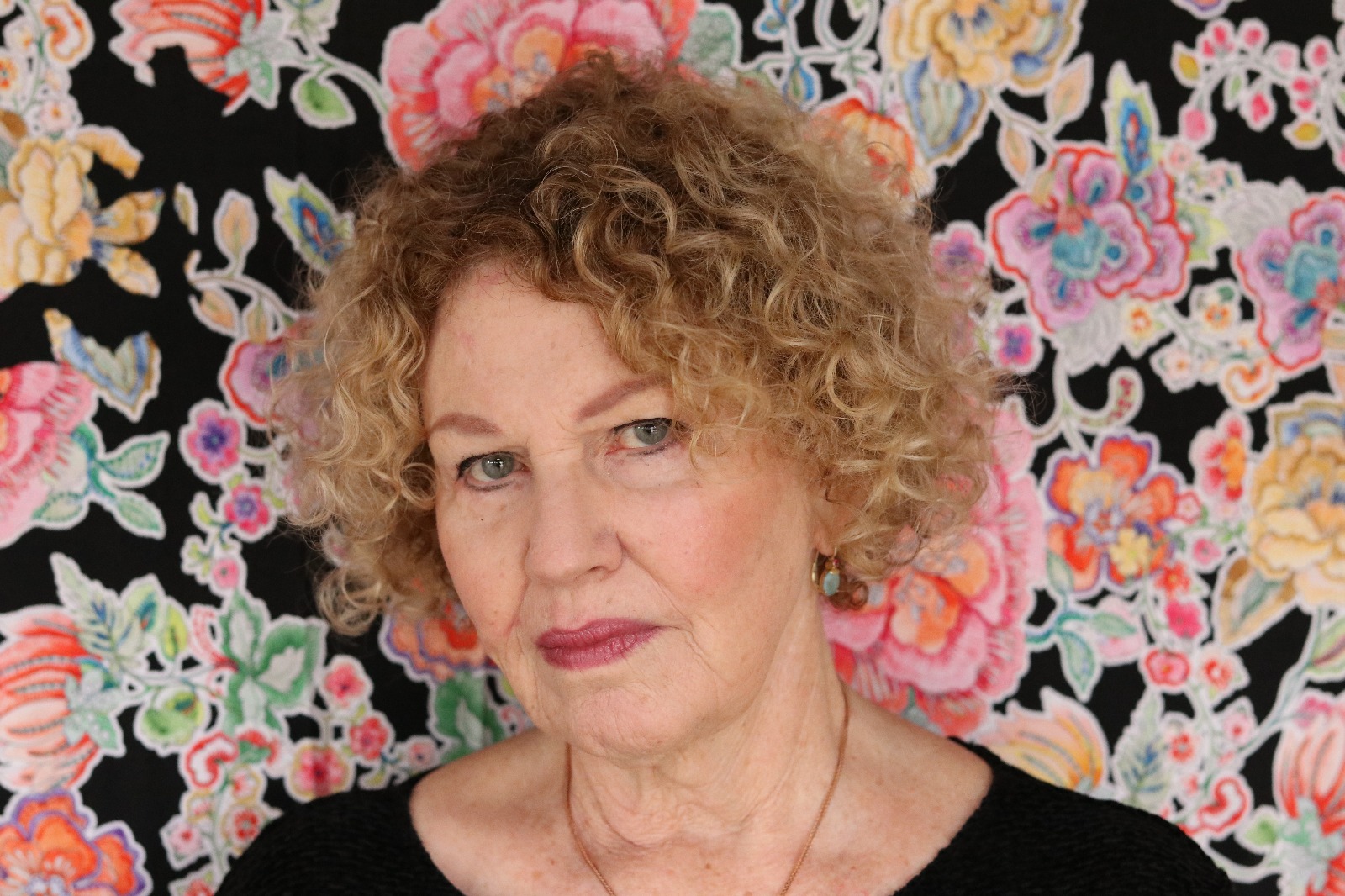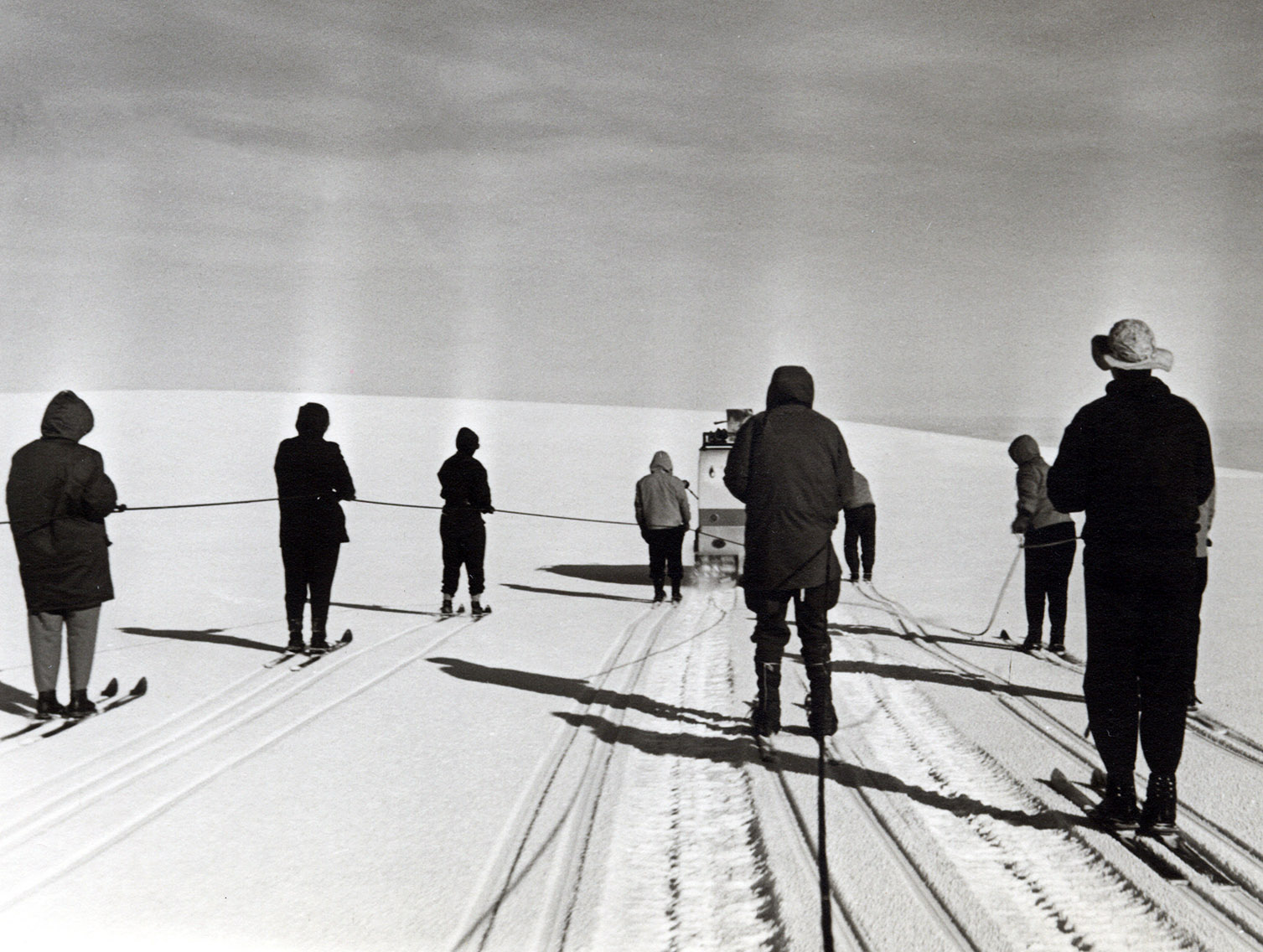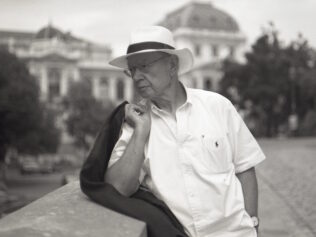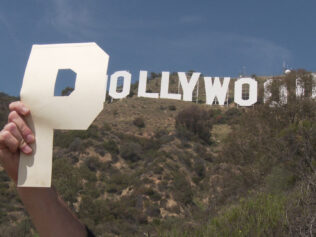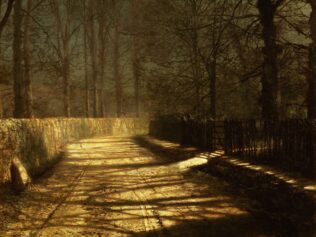
Paulina Małochleb: Can poets be asked about everything? In your poetry, there is clearly an ambition to explain the world – does poetry have that power?
Agi Mishol: Being 73 years old, I have gone through most of the phases of life and all of them co-exist in me. On top of this, I also possess what Olga Tokarczuk so beautifully defined as the most precious present nature can confer on one: imagination. Poetry as an idea inheres within the universe, and it pre-exists the separation into male and female or between individual poets, through whom it achieves expression. It is not different from music, the existence of which – although breathed through so many different instruments and human voices – predates all of them. As a human being who is also a woman, my voice can be designated as female.
My poetry, like that of all other genuine poets, gushes through and out of myself only. Every poet is a unique, non-reproducible medium. I am the only one who remembers the girl I was, and that girl is still there, in me. So are the teenager and the young woman I was. Artists hold on to the child in them, to the playfulness of that child, and to its ability to see everything in its primal form. They see what everybody else sees, but differently. The old woman I shall soon become also knocks at my door. My most recent collection of poems falls into three sections. The first of these, under the title “Life is Short even when it grows Long”, consists of a cycle of love poems, in the midst of which I planted a short poem called “Investigation”. Here, a sober voice reprimands the enamoured me: “What’s going on in your head, pathetic woman that you are! Where did these poems come from? In what world do you think you live. Say, are you still in your sweet sixteen? – Yes!”
I very much like Pablo Neruda’s saying: “The hair of the soul never turns grey.” The poet pointed at the gap between chronological age and the age of interior life. The two are often unsynchronized. I also like very much the answer one of my poet-friends gives when asked how old he is. He thinks a while, then says: “What can I say! Like everyone.”
Are we able to read nature without reference to ourselves; without human imagery? What role do we ascribe nature?
Throughout the last 500 years, we have become used to believing that what can solve the riddles of the universe is science. In particular: physics, which laid out the basic laws of space and time; chemistry, which explains the structure of matter; and psychology, which supposedly makes sense of human behaviour. Very rarely do we hear that the arts too, like the sciences, explore both the substance of nature as well as that of human existence. They simply do it by different means. The best representative of the arts’ exploratory function is Leonardo da Vinci, who lived in an area where a community of scientists of his level did not exist. Helped by his rich and exceptionally comprehensive imagination, he wrought out of it the tools with which he explored both nature and man.
I think of the giants of the spirit. Poets like Dante, Shakespeare, Goethe, Rilke, and those who came in their wake such as Pessoa, Emily Dickenson, and many others who understood the human soul as deeply and keenly as Freud and Jung did, only their means of expression and formulation of their discoveries were not systematic formulas, but rather images and metaphors. Those we sometimes treat as merely ornamental, cosmetic means of stylistic beautification.
In reality, they are tools of exploration searching for some set of laws, common denominators, hidden ties between phenomena that outwardly seem completely unrelated. The arts and the sciences explore the world by different means and methodologies, different languages. But, yes, the former, like the latter, absolutely can penetrate deeply into the nature of things. Only they do that in a rich language, which at the same time is accessible to many, not only to a community of scientific experts.
Is this why the language of nature is closer to you? Because it’s more universal?
In my own poems, nature is one of the protagonists. I live in the country, and my husband owns a plantation and grows fruits. I have always lived together with animals and among trees, and I regard them as friends for life. It is very difficult for me to watch animals being mistreated or forests being cut down. ‘Natural’ disasters, for which greedy people with their minds set only on monetary gain are responsible, enrage and exasperate me. Nature is the prism through which I often see things. It is never meant to function as an ornament or mere background. When I write on nature, I am moved by deep observation and poignant compassion.
Does the climate catastrophe change the language of poetry?
Nature is one of the monumental topics of poetry. There is almost no poetry that completely shies away from relating to it. The various attitudes toward nature are often influenced by literary trends, conventions, prevalent fashions. There is no resemblance between nature as it is celebrated in the poetry of the Romantics and the way it features in the haiku or in poems written under the influence of eco poetics. Pastoral poetry, for instance, usually beautifies nature. Often nature is projected as a background or an analogy to the variants of the human situations. Thus cresting breakers dashing against the coastline, or a storm in the midst of a raging ocean, or a twinkling star that points to a geographical, mental or emotional distance. The open country is usually projected as beautiful and consolatory. In such projections, it is detached from reality, from nature’s function also as a complex system of deterioration and destruction, which is completely glossed over. The haiku presents what is probably the most radical example of an objective or ‘neutral’ attitude toward nature, because of its basic assumption that the poem should be as much as possible detached from the ‘I’; as much as possible unalloyed by the presence and commentary of an observer, and thus able to objectively portray small, immediate occurrences. Lately, the trend of eco poetry – a ‘green’ poetry, conscious of the environment and informed by an ecological message – is gaining momentum.
Why, in your view, is old age worth nothing?
What is old age? It depends on who you ask and his or her age. As the years accumulate, the relationship between chronological age and the actual biological and temperamental age is marked by growing discrepancies.
In my short poem from my penultimate collection OH! SIMPLE SOUL, which you refer to with this question, I quite timorously started to feel the contours of my chronological age. People of words often shy away from the words ‘old age’, which are sometimes by far more repulsive than the actual experience of being old. In that opening poem (“To My 71st Birthday”) I wondered whether any muse would choose me now as its medium. I imagined the muses preferred younger poets who still possess desires, passions, contacts with the primary. Poems are witches. The muse knows before the poet what lies in the future, and she hints at this in coded messages, but the code remains for a while undiscovered by the poet. The muses are often playful and cunningly funny. The one who was responsible for the poem you refer to, as well as for the entire collection, knew beforehand that my next collection, ENVELOPE, would be swept by desire, passion and libido – non-dependant on age.
Some say novelists become better, mellower, as they advance along life’s passage, while poets reach their poetic apex early in life. There are many examples of this both in Hebrew poetry and in a lot of European poetry (from Ibn Gabirol through Bialik to David Avidan; from Arthur Rimbaud to T.S. Eliot). However, there are some great poets who gained full command over their talent in a kind of second or new youth that occurred when they reached the second part of their lives. Such were Goethe, Miłosz, and in Hebrew the great poet Jacob Steinberg. This is quite bewildering, because almost everything you say about poetry can be valid if applied to an opposite statement.
So what does old age mean to you?
In these days of the COVID-19 pandemic many theories have surfaced, such as that the human population of the planet is too dense and soon will not have enough food to share. So nature took it upon itself to thin out the older members of the species. Suddenly I have found myself in the high risk section of the race. Of course, thoughts of the fate of the elderly in different human societies and cultures come to mind. I would prefer to live among some African tribes who honour the elder of the tribe and appreciate their extended life experience. This is definitely better than being a shrivelled old Eskimo, who is left to freeze to death alone in a howling snow storm.
You were born after World War II. What was your life like as a member of the second generation of survivors? Were your parents open about their experiences during the Holocaust?
People who survived the Holocaust fall into two groups: those who never stop talking about their experience; and those who, looking forward, kept their mouth shut. My parents belonged in the second group. They protected me, they hid from me the unspeakable facts. But those things enter one’s blood by osmosis. They flow with the mother’s milk; they are whispered in the corners of the house; they materialize themselves through the kind of people who encircled my parents – people whose lives were hard, having left behind them everything they had owned, arriving in Israel quite penniless. Having no Hebrew, they somehow had to make ends meet, starting from scratch.
From my parents’ point of view, I was the ultimate answer to whatever had transpired in their lives there. They managed to raise me healthy and well balanced in body and soul alike. The transition from language to language honed my linguistic sensibility, and is partly responsible for my being a poet in this age of transition. I think one can find in my poetry a mixture of the elegiac tonality I inherited from my mother and the legacy of my father’s husky humour. In the cycle of poems called “Mother-tongue” I described how, with the years passing by, poetry itself assumed the role of my mother.
You had an older sister who died during World War II. In what way did your family remember their life in Europe?
I was three-and-a-half years old when my parents left Transylvania on their way to Israel. My mother was an Auschwitz survivor. My father lived through the war as a prisoner in a hard-labour camp. Before me, they had had another girl who died under circumstances that were strictly kept from me as a secret. To this day, the story of her demise exists in various versions, all of which are vague enough. I dedicated to her a very short poem: “Of my sister who had soared to heaven in a jet of smoke I have only two memories. One: her name; the other: the fact that I inherited the life she had forfeited.”
Your family left Europe after the war, which was before your conscious memory. How did this mould your life and personality?
One of the most wonderful things that happened to me was my encounter with the Hebrew language. I am an Israeli poet, and quite naturally I think in Hebrew. I remember one occasion only in which my Hebrew imploded and my Hungarian origins popped up. When my father died, I drove home from the hospital, crying and hearing myself mumbling again and again APUCI (Hungarian for ‘daddy’).
Did language unite or divide your family?
My parents spoke basic Hebrew, but were unable to genuinely read my poems. As I wrote in one of the poems I dedicated to my mother: “Your mother-tongue is not my mother-tongue.” It is difficult for me to imagine such a relationship between me and my daughter. It is like a long progression of ants forming a single file, which was cut in two by someone with a stick. The continuity of the caravan was destroyed.
You describe a very important role of a woman – as a nurse/caregiver for her parent. It is a great role in human life, but I don’t see it very often in literature.
Generally speaking, I believe poets write about their parents more often than about their children. There are many poems starting with “My father said”, or “Mother told me”. Parents are the primary personae in the theatre of our mind. They were the ones who raised us, and we absorbed everything they intentionally or unintentionally invested in us, the good and the bad. Often, we carry within us their complexities and complexes. It takes much time and effort for us to work through their legacy and achieve genuine separation from them. Thus we can reach the position of objectively contemplating their lives, experiences and personalities, and offer them love and compassion that do not involve our egotistic needs. As far as the poet is concerned, compassion consists of the highest peak from which one can write about one’s parents. My own individual case was such that I had to parent my parents. Having arrived in Israel without Hebrew and local orientation, their path was strewn with difficulties. I had to negotiate these difficulties, to play the role of the mediator between them and the world. This role became along the years ever more vital, since as I grew, I better understood the world they had to confront. Only after they passed away could I freely write about them, always from the vantage point of compassion.
For you, war has a very modern form – it’s not an open conflict, but continuous tension.
Being an Israeli poet scorched by the sizzling heat of the Middle East, I had to accept stress and constant uneasiness as my ‘element’. My village is not far from the so-called Gaza Strip. It happens to be located under the flight routes of three different military air bases. We are farmers. My husband Giora grows peaches and pomegranates. We understand our lives as anchored in nature with its cycles of growth and shrivelling. My poems are therefore full of the flora and fauna of the land. However, when I write about a flower or an animal, some readers think they have been short-changed by me. The complaint is as follows: “Is that what you feel you have to write about?! Where do you think you live?” I am accused of escapism and wallowing in pastoral comfort.
I once had a reading in Berlin together with the Palestinian poet Mahmoud Darwish. A large part of the audience were Muslims. When he read love poems, they protested and demanded political verse. Later, when we shared a taxi to the airport, he said these expectations followed him everywhere and were were a source of constant chagrin. People no longer ‘allowed’ his muse to roam freely. Indeed, when one’s life is surrounded by violence and bloodshed, one can hardly ignore the suffering and the victims, even if one sometimes tries to defend their ears against the horrific noise of propaganda and strife. But sometimes one writes a poem about a flower or a donkey and discovers that they became ‘politically’ significant, since they are in real contact with their space and time. I do not consider myself a political poet. But historical reality directly and indirectly invades my poems and influences my choice of words, even the music of my verse.
Parts of this interview have been edited and condensed for clarity and brevity.

